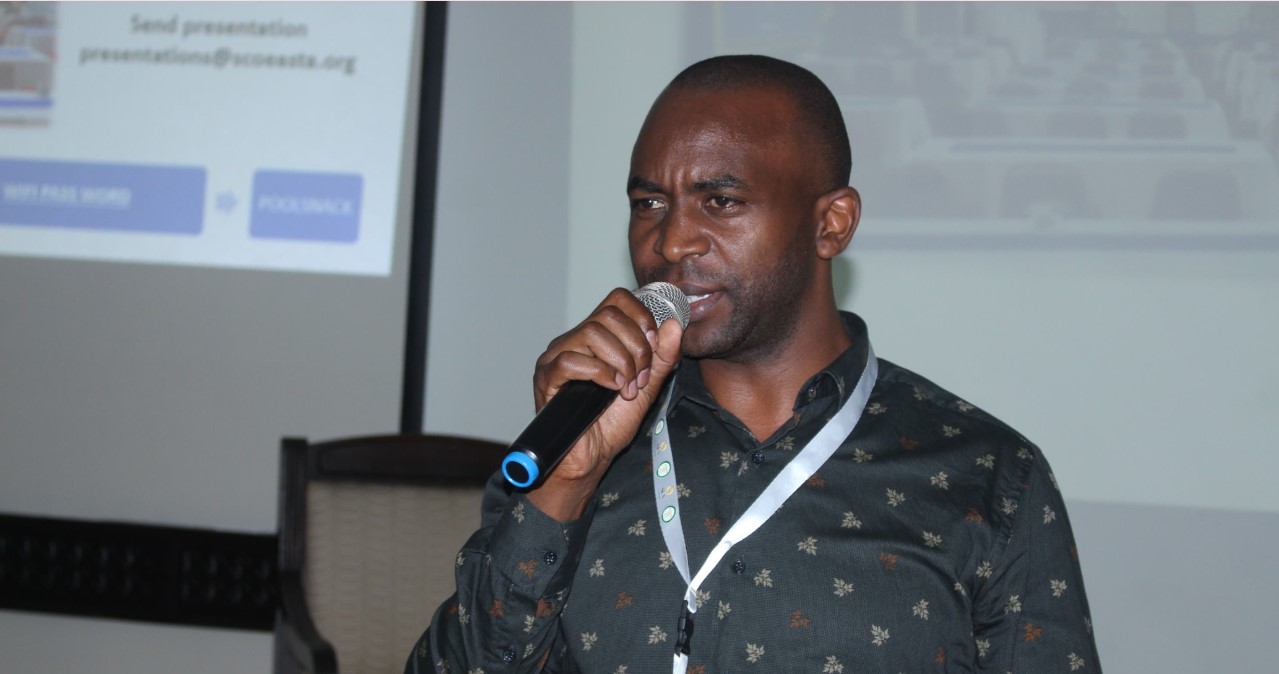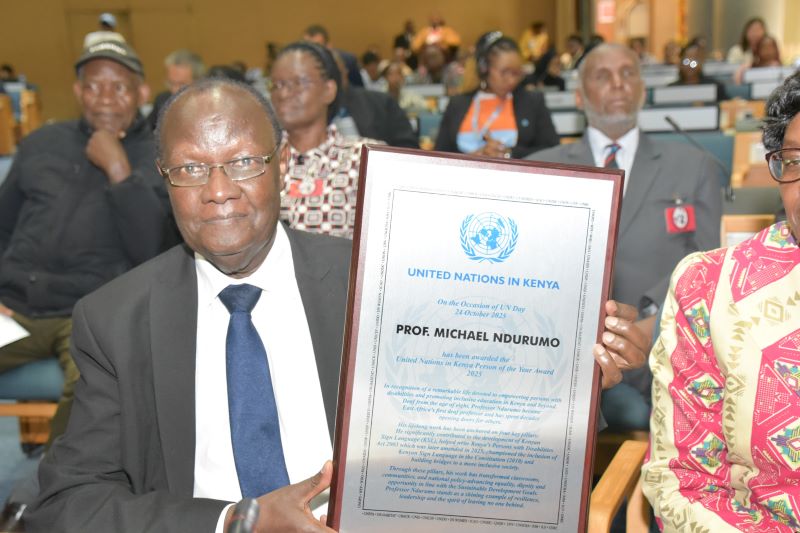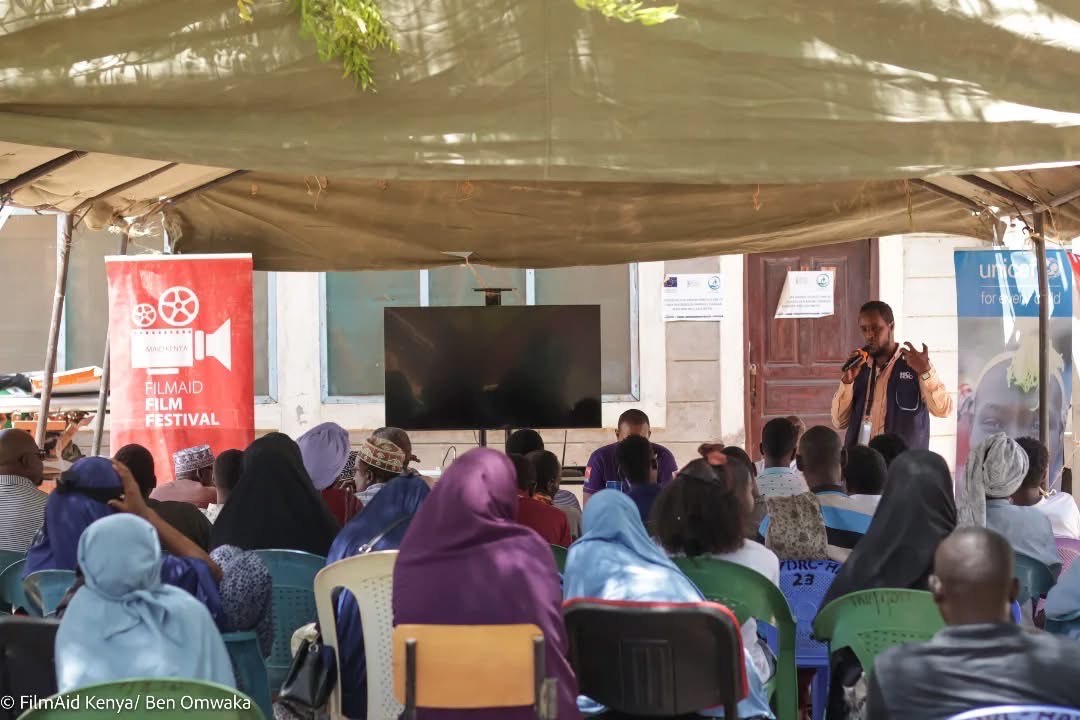Clinical officers raise concerns over SHA implementation

THe clinicians pointed out that SHA has implemented a policy requiring only facilities registered with the Kenya Medical Practitioners and Dentists Council (KMPDC) to be contracted.
The push for universal health coverage in Kenya faces fresh challenges as clinical officers decry corruption and discrimination within the proposed Social Health Authority.
The new policy, which aims to streamline healthcare delivery, could see over 1,000 clinical facilities managed by clinical officers no longer providing services under this framework.
More To Read
- Marsabit medics accuse county of betrayal as salary crisis deepens
- MPs grill SHA over Sh91m legal costs, disputed Karen land and stalled NHIF projects
- SHA failing patients with cancer and chronic illnesses, parliamentary report reveals
- Senators vow to hold SHA accountable for delayed health funds to counties
- Health committee session turns chaotic as Duale clashes with MP Kibagendi over SHA probe
- SHA Board names new senior management team to strengthen healthcare oversight
Clinical officers, who are the first point of contact for patients at primary healthcare facilities (levels 1-4) and form the backbone of the country's healthcare workforce, have voiced opposition to a new mandate requiring them to register with the Kenya Medical Practitioners and Dentists Council (KMPDC).
This move has sparked controversy, as clinical officers are governed by their own independent regulatory body, the Clinical Officers Council of Kenya (COC).
According to the Laws of Kenya, Act No. 20 of 2017 mandates the Clinical Officers Council (COC) with the responsibilities of training, registration, and licensing clinical officers, which they argue should remain in charge of their training and professional practice.
Peterson Wachira, the National Chair of the Kenya Union of Clinical Officers, has strongly criticised the implementation of the Social Health Authority. He has called for the disbandment of the entire board, citing widespread corruption within the authority.
Wachira accused the Social Health Authority (SHA) of corruption linked to its contracting process. He described the corruption as "an organised form of extortion targeting clinical officers" and highlighted that the SHA board is failing to "follow the law."
According to Wachira, SHA's policies are undermining legal frameworks, particularly by disregarding the role of the Clinical Officers Council of Kenya, which is constitutionally recognized as a regulatory body for clinical officers.
"SHA is making policies against the law, which becomes corruption, while the law has clearly stipulated the bodies that can register healthcare providers, and the Clinical Officers Council of Kenya is one of those bodies under the constitution," he said.
Wachira pointed out that SHA has implemented a policy requiring only facilities registered with the Kenya Medical Practitioners and Dentists Council (KMPDC) to be contracted. This policy is now forcing clinical officers to "register with KMPDC so that they can be contracted by SHA."
Penalties
He stressed that the Clinical Officers Act mandates that clinical officers must register with the Clinical Officers Council, and failure to do so could lead to a jail term of up to one year or a fine of one million shillings. "When forced to register with KMPDC, they are facing double registration," he added.
He further stated, "KMPDC is not mandated to register clinical officers," calling this a case of "regularised corruption." "If anyone is making a policy outside the law, then that is nothing else but corruption," Wachira declared.
Wachira warned that the SHA's policies would negatively affect many Kenyans by hindering access to healthcare. "The impact of these policies will leave many Kenyans struggling to access health services," he said.
He pointed out that the preauthorisation process is creating significant hurdles for clinical officers, and the situation could leave "over six million Kenyans" without access to essential health services. "What SHA is advocating is a financial hardship," he added, "since denying clinical officers the ability to register will trickle down to the common mwananchi."
The Kenya Union of Clinical Officers has already approached the KMPDC and sent formal letters to express their concerns. According to Wachira, the SHA board should be "disbanded and constituted with people who understand the body."
Stephen Muthama, a clinical officer and reproductive health specialist, has condemned the new SHA policy requiring an external regulator to complete pre-surgery and post-surgery forms, a task traditionally handled by specialists conducting the procedures.
— The Eastleigh Voice (@Eastleighvoice) December 6, 2024
“This policy is… pic.twitter.com/BmDnHpisMV
He argued that denying over 1,000 clinical officers the ability to provide care to millions of Kenyans is a grave injustice. "If you refuse to authorise and register more than 1,000 clinical officers who were offering care to more than 6 million Kenyans, it means you are leaving many Kenyans behind," he said. Currently, around 752 facilities have not been registered, and 500 facilities are already registered under SHA.
Financial hardship
He noted that if these facilities remain unregistered, patients will be forced to pay out-of-pocket for services, which contradicts the goal of universal health coverage. "When these facilities are not registered, patients will be forced to use out-of-pocket payments, which is against universal health coverage," he explained. "SHA's actions will create financial hardship, and this will ultimately affect the ordinary Kenyans seeking healthcare."
Stephen Muthama, a clinical officer and reproductive health specialist, explained that previously he was able to handle preauthorization independently without external pressure. However, under the new SHA policies, he is now required to obtain preauthorization from another body.
"If a patient is being discharged today and they have the SHA form, I cannot authorize under SHA despite being the one performing the procedure. SHA is forcing us to involve someone registered with KMPDC to approve and discharge, even though I am trained, licensed, and should be allowed to practice under my own regulatory body," Muthama stated.
He also pointed out that over 1,500 clinics registered by the Clinical Officers Council have been excluded from being part of the SHA panelling. "Forcing clinical officers to obtain a second license is placing a financial burden on us and is discriminatory. It is disrespectful to our profession and coerces us into always having a doctor present to complete procedures and preauthorisation forms—something that was never required before. We are independent professionals."
Muthama further expressed frustration with the demand to use doctors' credentials, calling it demeaning. "The process is time-consuming for patients and doesn't help address emergencies quickly. Because we cannot fill out the forms, patients are unable to get timely services. Clinical officers are usually the ones available, but now patients are forced to wait longer, and many are having to pay out of pocket."
Speaking during the official opening of the Kilifi County International Investment Conference on Thursday, President William Ruto addressed concerns over the Social Health Authority (SHA).
"There is a lot of misinformation and fake news circulating, and I want to assure the nation that the issues of fraud and corruption that previously plagued the NHIF will not occur under SHA, as long as I am in charge. It will not happen in our Universal Health Coverage plan," said Ruto.
The President stressed his commitment to transparency and accountability, directly challenging any doubts about his administration's dedication to the cause.
"I will look the people of Kenya in the eye and assure them there will be no corruption under SHA as long as I am president," Ruto affirmed.
He reiterated his administration's pledge to ensure that Kenyans get full value for their contributions to the healthcare system, stressing the importance of providing quality services while avoiding mismanagement.
On Thursday, clinical officers staged a protest at Afya House to voice their concerns. However, the issues raised have yet to be resolved.
Top Stories Today

















































